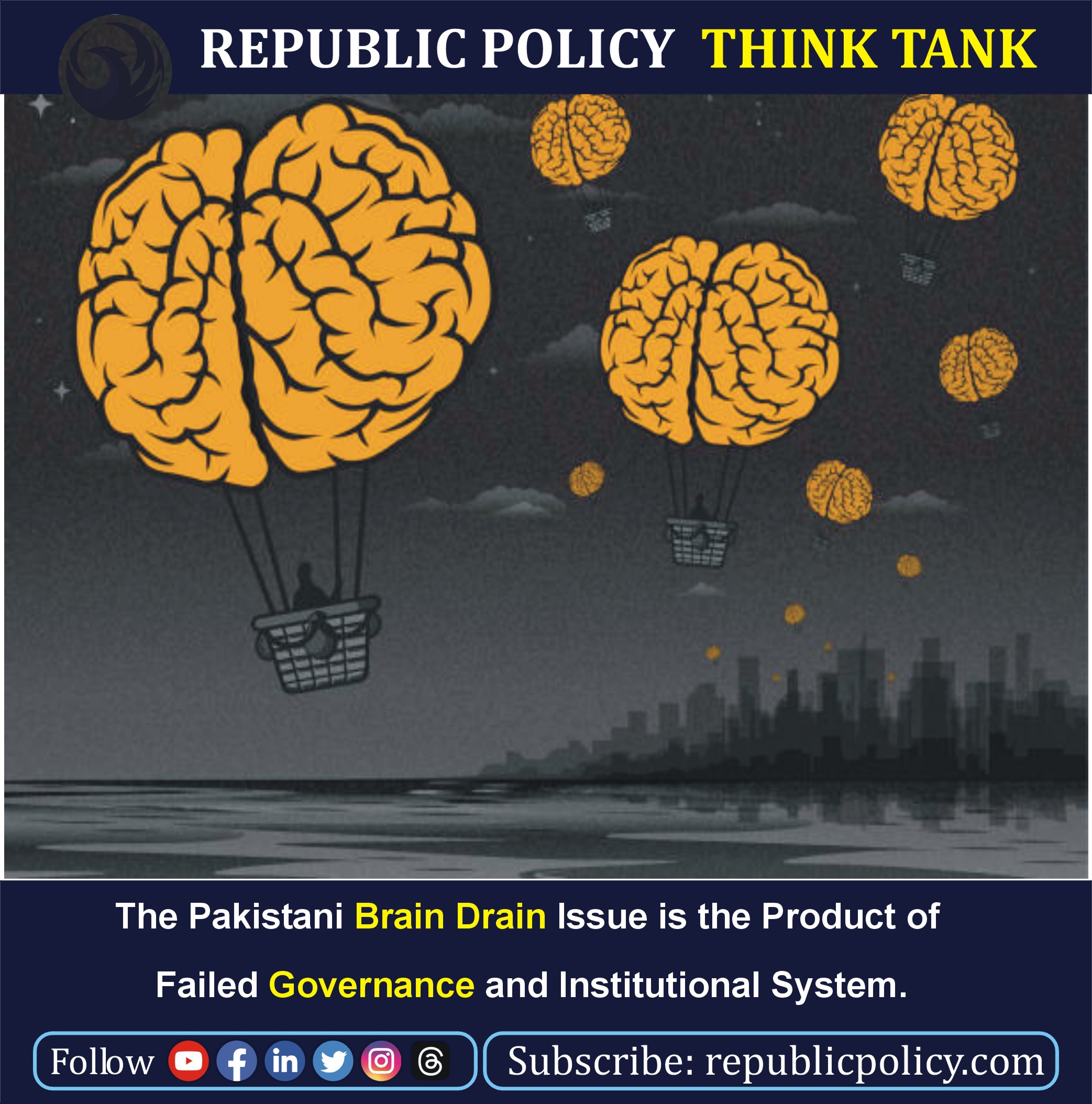Dr Bilawal Kamran
Brain drain is the emigration of highly skilled and educated individuals from a country, typically due to a lack of opportunities or a perceived lack of quality of life. It is a significant problem for many developing countries, including Pakistan. Accordingly, Pakistan lacks quality human resources to develop and grow.
Several factors contribute to brain drain in Pakistan. These include:
- Lack of economic opportunities: Pakistan has a relatively low GDP per capita and a high unemployment rate. This makes it difficult for highly skilled individuals to find good jobs in their home country.
- Political instability: Pakistan has a history of political instability, which makes it a risky place to live and work. This is especially true for minority groups and those who hold dissenting views.
- Poor quality of life: Pakistan has many problems with its infrastructure, healthcare system, and education system. This makes it difficult for highly skilled individuals to live a comfortable and fulfilling life in their home country.
- War and terrorism: Pakistan is a country constantly threatened by war and terrorism. This makes it a dangerous place to live, especially for those who work in sensitive fields such as security and intelligence.
The brain drain has several negative consequences for Pakistan. These include:
- Loss of talent: Pakistan loses out on the skills and expertise of its highly skilled and educated individuals. This makes it difficult for the country to develop and grow its economy.
- Slower economic growth: The brain drain leads to slower economic growth. This is because there are fewer people to start businesses, create jobs, and innovate.
- Damage to the education system: The brain drain also damages the education system. This is because the best and brightest students are more likely to leave the country, leaving behind a weaker pool of talent for the next generation.
- Decreased social cohesion: The brain drain can also lead to decreased social cohesion. This is because the country loses out on the contributions of its most talented and educated individuals. This can lead to a sense of alienation and despair among those who remain in Pakistan.
There are a number of things that can be done to control brain drain in Pakistan. These include:
- Creating more economic opportunities: The government needs to create more economic opportunities for highly skilled individuals. This can be done by investing in education and infrastructure and by creating a more business-friendly environment.
- Reducing political instability: The government needs to reduce political instability in Pakistan. This can be done by improving governance, strengthening the rule of law, and promoting tolerance and understanding among different groups.
- Improving the quality of life: The government needs to improve the quality of life in Pakistan. This can be done by investing in healthcare, education, and infrastructure.
- Addressing the threat of war and terrorism: The government needs to address the threat of war and terrorism in Pakistan. This can be done by working with the international community to combat terrorism and improve the country’s security situation.
The brain drain is a serious problem for Pakistan. However, it is a problem that can be solved. By taking the steps outlined above, the government can control the brain drain and help Pakistan to achieve its full potential. Therefore, Pakistan should develop its economy and bring political actualization. Society should provide more opportunities to young people in Pakistan. Most of the youth say that there is no rule of law in the country, which is the primary reason they do not want to live in Pakistan. Then, there are no human rights or political aspirations in the country. Youth believe that their right to elect their representatives is denied in Pakistan. Furthermore, they also think that stringent economic opportunities are also the primary reasons to leave Pakistan and settle abroad permanently.
Pl subscribe the channel and website of republicpolicy.com
















